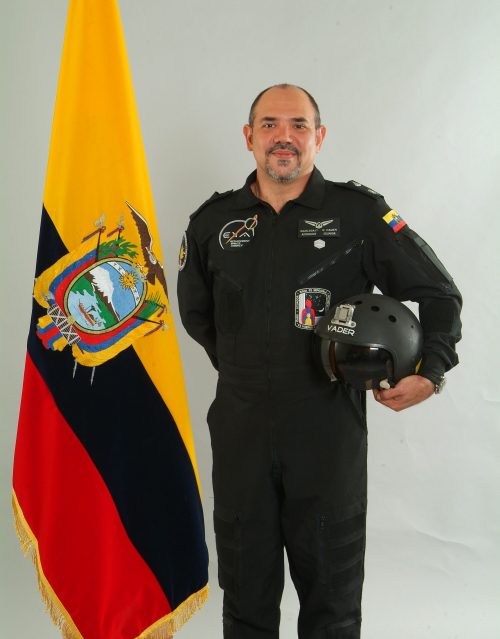
Meet Ronnie Nader: Ecuador's First Astronaut
Within the framework of inter-institutional cooperation with the Ecuadorian Civil Space Agency - EXA, we have maintained several approaches in order to promote future collaborative actions.
Among the approaches mentioned, we conducted an interview with Ronnie Nader with the aim of knowing in depth about the management developed by the agency and the expectations generated with the inter-institutional approach with CEDIA .
Ronnie Nader is EXA's Director of Space Operations, President of the Latin American and Caribbean Regional Group of the International Astronautical Federation - IAF and Permanent Member of the International Academy of Astronautical Sciences - IAA.
My current job at EXA is to direct the development of its own space technology and test it in orbit, at the IAF it is to promote Latin American space development with an emphasis on youth and at the IAA it is research in space engineering sciences on advanced space flight technologies human.
Taking into account that EXA was founded more than 10 years ago and according to the Space Program proposed in 2007, the first Ecuadorian satellites were planned to be launched in 2016, but they were launched in 2013, there was no mention of achieving the microgravity world record , but we did it in 2008. We had planned to start exporting Ecuadorian space technology in 2018, but we started doing it in 2016. I think I have exceeded the goals set by EXA in the 2007 Space Program.
All the time has been pleasant, because I work in what I was born to do but I remember special moments, like when we achieved the world record in the EXA/FAE-06 mission in 2008, when we started up HERMES-A, our earth station; The night of April 25, when we launched our first PEGASO satellite and that same night I could hear its transmission from space and the morning that we recovered its signal thanks to our second satellite, KRYSAOR.
The night we lost the signal from PEGASUS due to a collision with space debris over the Indian Ocean.
I wouldn't know what to answer to that, the truth has never been much of a difference for me; I was born an astronaut, it's just that it took me 40 years to prove it to the Russian Government and the world.
Frankly, I don't see technological development in Ecuador, apart from what EXA is doing, for example, a month ago, an institution in the United States asked us to design, develop, test and send them a class 4 LASER for a satellite that takes off In August in a NASA rocket, with the highest standards, three days ago we shipped it and two hours before writing these words they received it in the United States. This sounds like a miracle to anyone, but we were able to do it this way because we basically adapted one of the many LASERs we already had from another research project developed two years ago.
So actually, it wasn't 30 days, it was more than 18 months of experience and investment that paid off, but when we were developing that project we had no idea that we were going to apply what we had learned to something very different. That's right, research is planting, it's hard work that pays off with the harvest, but you always have to water and fertilize. Research in science and technology is not a sport, it is not a football game where you win and lose, in this there is no word 'failure', that is for those who play to win or lose and we are not playing here, here we are constantly working and investigating and the only failure is to stop doing it.
So, from that vision and line of work, I don't see any of that in Ecuador, it doesn't mean that it doesn't exist, it's just that I personally don't see it.
That the proposed goals are met, actually in these 10 years of existence EXA has signed many agreements with many institutions, but rarely does it even begin to work on them and not for lack of us, because for us the written or spoken word constitutes a true commitment and I sincerely hope that this time is different.
I hope that we can really work and make what we have committed ourselves to come true, on our part there will never be a lack of will or time, our country needs a lot of work to create sustainable development and this cannot be done by doing more of the same as always, marching on the ground itself, we need to do new things and that is scientific research and technological development to go where we have not gone before, even though others have already arrived, what matters is that we have arrived, because no one can live by ourselves and we maybe we could do it better, faster and stronger and that is what humanity knows as progress.

